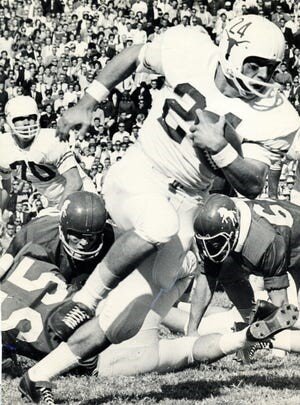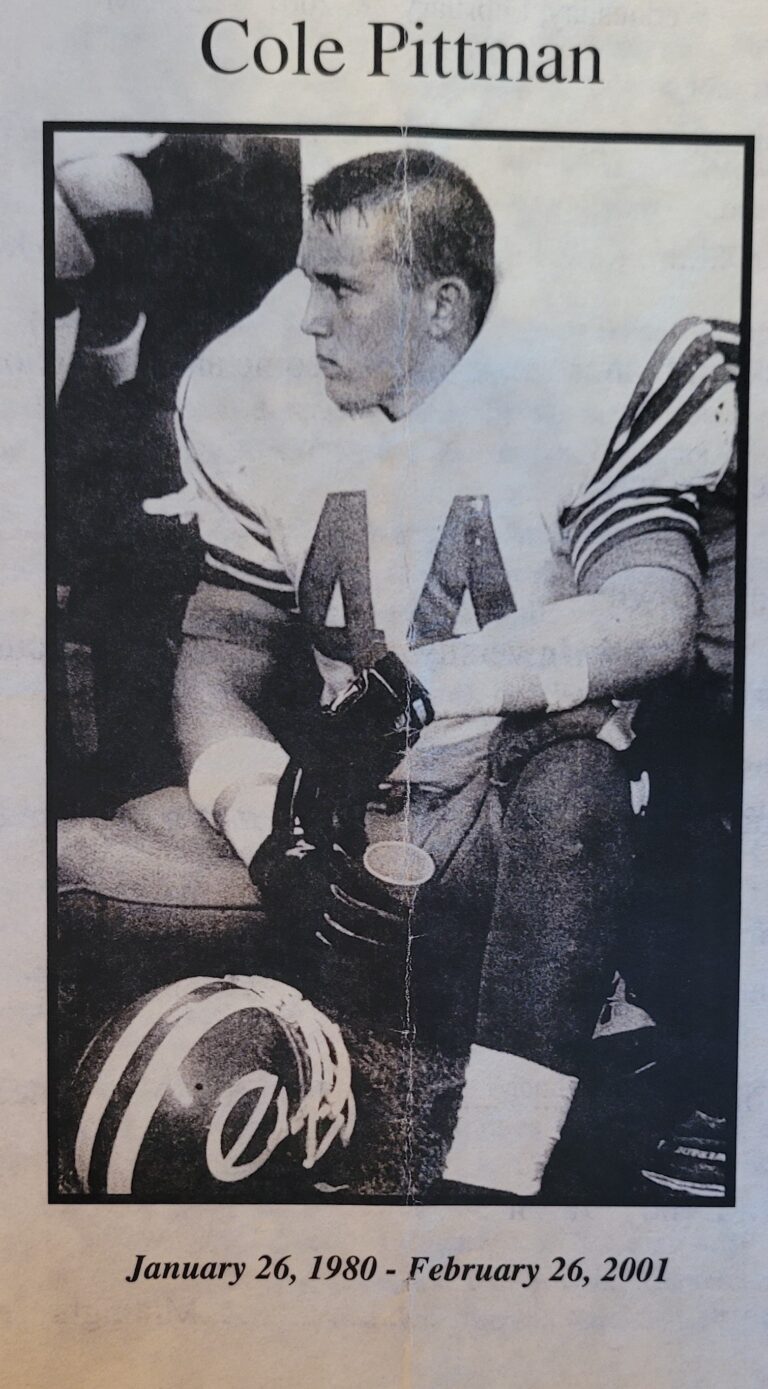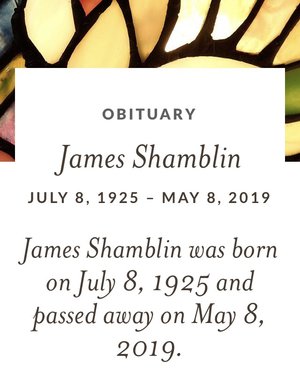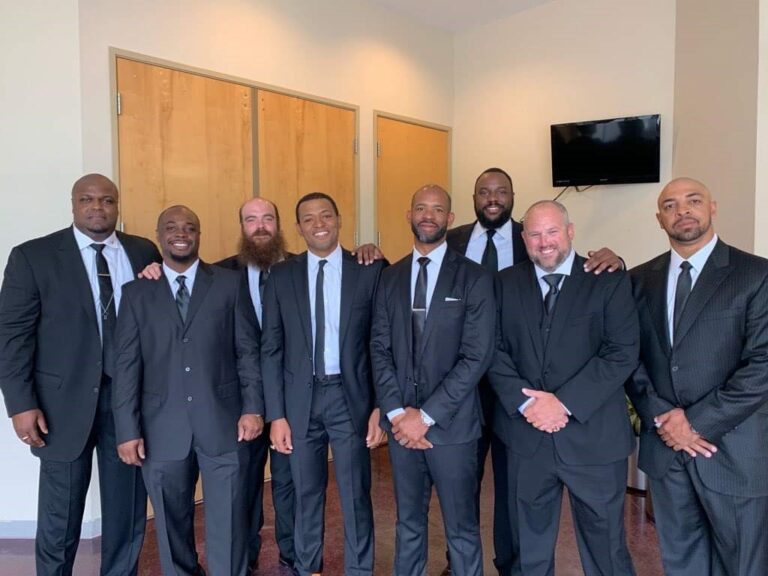Tommy Ford obit
Tommy Ford has passed away
Tommy Ford
-
Ken Capps Tommy Ford’s football helmet was on display at the Hoffbrau’s on Knox St. for years. One year, the Dallas Texas Exes held a Fall Football Kick-off at Hoffbrau and invited Ford to partake in the festivities. He loved and was the life of the party. Hook’em
-
Leonard Tolbert One of the toughest pound-for-pound ever. But even then just a great guy and friend. RIP good buddy!! Loved you much as a friend and salesman.
Teammates call Tommy Ford “T-bird” for the Thunderbird made by Ford. Orville Henry writes in the Arkansas Gazette that Tommy Ford is one of the best 5-yard runners of all time. Royal says 5′ 9″ ramrod Tommy Ford would be a six-footer if he did not play football. Royal loved athletes like Tommy Ford, stubborn athletes who punished would-be tacklers and pumped their legs to make the last inch out of every play.
Royal gravitated to recruits with dreams of greatness. Royal liked high school athletes who chose not to run out-of-bounds but instead stuck their cleats in the turf and pointed a face mask straight upfield. He understood that small guys who think they are big and fast make great recruits. Tommy Ford would “hitcha”.
Billy, if you have any means of contacting the Ford family, I would appreciate getting that information. I worked for Tommy in the summer of 1971 when I returned to McGregor between my junior and senior years at UT. I interviewed for about a dozen jobs that summer but no one was hiring. A friend told me that Island Plastics in Woodway (owned by the Bradley brothers who also owned B & B Sporting Goods in Waco) was hiring so I went there to complete an application. I was sent into the HR office to meet the director, a Mr. Ford, who told me they weren’t hiring any more summer positions. I noticed he had a 1963 UT championship ring and I immediately realized this Mr. Ford was Touchdown Tommy Ford! He noticed my 1970 championship ring and I showed it to him. When he asked me how I got it, I explained that I was a student manager. He asked which coaches I worked with and when I said the defensive coaches, specifically Pat Patterson and David McWilliams, he perked up and told me a few stories about his tri-captain. At that point, Tommy told me that he would see what he could do. Later that day, I got a call at my mother’s house that directed me to return to see Mr. Ford. He had spoken with David McWilliams and based on that conversation, created a job for me. Minimum wage-$1.25 an hour, doing odd jobs around the plant. Let me emphasize “odd jobs” which meant any dirty work that was needed, including cleaning up a plastics waste sludge pit that the EPA would have fits about today (the EPA was a year old in 1971 and barely organized). Tommy was a quiet man who took an interest in me. I saw him on many occasions over the years but had no contact with him in the past six to seven years. The news of his death saddened me as he passed at an age when people should be enjoying grandkids and great-grandkids. I’d like to send a note to his family.
Thanks, Billy. I hope all is well
David Anderson
San Angelo Central, Longhorns football great Tommy Ford made impact on and off the field
San Angelo Standard-Times
Charles Bryce is a journalist covering sports in West Texas. Send him a news tip at cbryce@gannett.com. Consider supporting West Texas journalism with a subscription to GoSanAngelo.com.
Before etching his name in Texas Longhorns history, former San Angelo Central High School football standout Tommy Ford was one of the Bobcats’ greatest players, and those who knew him have very fond memories.
After wrapping up his football career with the Bobcats in 1959, Ford played tailback for the Longhorns from 1961 to 1963, and he was the leading rusher on UT’s first national championship team in 1963.
“Tommy was a natural athlete and team leader,” said former Bobcat teammate Don Griffis, a retired San Angelo attorney. “He was one of the most focused persons I’ve ever known. On the field, he was completely focused on what the different players are going to do at that given moment.”
Most people didn’t hear about it when Ford died at the age of 79 earlier this summer in Waco.
Described as a shy, reserved man, Ford told his family he didn’t want a funeral, and they honored his wishes. He had been battling Crohn’s disease for years.
Griffis remembers Ford being quoted by the media in the 1963 season before Texas locked horns with Oklahoma in their heated rivalry.
“As the team was waiting to go onto the field, he said it was like being with the Marines before they landed on Iwo Jima,” Griffis said.
“That always stuck in my mind that he saw it not just as a Saturday outing to be followed by parties that night. He saw it as a battle and he gave every bit of strength that he had to win the battle.”
Those who saw Ford play for the Bobcats or Longhorns was treated to something special.
“Tommy was a sophomore when I was a senior, and none of us had ever really heard of Tommy Ford, but he came on with a vengeance,” said Bobcat Athletic Hall of Fame chairman Buddy Peel said.
When he got to be a senior, Ford and the Bobcats shut out Abilene High 10-0 in 1959 to snap the Eagles’ long district-winning streak.
The Eagles had won three straight state titles from 1954-56, and they were the dominant team in the state in that decade.
“Tommy was obviously very instrumental in that victory,” Peel said. “That was one of the best Bobcat football teams of all time.”
Ford is in the Texas Sports Hall of Fame, and he was in the inaugural class of the Bobcat Athletic Hall of Fame in 2010.
He was in the second graduating class at Central in 1960. Before 1959, it was known as San Angelo High.
“He was incredible as far as a football player was concerned, and he was also an outstanding baseball player,” Peel said. “He was real quiet and unassuming, just a go-out-and-play kind of a guy.
“He set the district scoring record as a sophomore. He scored five touchdowns in one game against Big Spring.”
Under head coach Bob Harrell, the Bobcats went 3-6-1 in Ford’s sophomore season in 1957, followed by a 6-4 mark in 1958 and a 7-3 finish in ’59.
The Central-Odessa Permian series started in ’59, and Ford helped the Bobcats squeeze out a 12-7 nail-biter at San Angelo Stadium.
The 1960 Central yearbook had this to say about the showdown between the Bobcats and Panthers: “Both teams were plagued by fumblitis throughout the contest, with a frigid north wind making the ball difficult to handle.”
And guess who scored the winning TD? No. 21 — Tommy Ford.
Central’s tri-captains in 1959 were tackle Ronnie Cosper, center Kenneth Henson and Ford. The quarterback was Billy Mullins, the older brother of Gary Mullins, who helped the Bobcats win their second state title in 1966.
Tommy Ford was a man of a few words. He was a quiet, friendly man who didn’t smile too much. He was not a demanding person. He seldom stopped by the equipment room window to ask me for new equipment as opposed to some players who wanted new equipment every day. One favor Tommy did ask of me I’ll never forget. In the 1963 season, he stopped by the equipment room window and in a very friendly manner asked me if I would do him a big favor. I said sure, Tommy. What’s the favor? He answered, is it possible I can get new cleats for my games shoes before each game? I answered him I’ll be glad to do it. So before each game during the season I made sure he had new cleats for his game shoes. Even thought he didn’t ask me for new shoes, I issued him new game shoes three times during the 1963 season. Quiet man he was, but he did his talking on the field! After Tommy finished his playing career at Texas, he would always stop to visit with me when he attended a home game. Rest In Peace, my friend! Juan Conde
Some of the Bobcats’ other top players in 1959 were guard Melvin Gray and halfback Weldon Allen.
Allen, a retired San Angelo firefighter, gave his recollections of Ford.
“You couldn’t find a better man,” said Allen, who was a sophomore when Ford was a senior. “Whenever the game was over, he’d try to shake everybody’s hand, but on the field, look out! He’s a wildcat and he will knock your head off, so just get ready for it because it’s coming at you.
“I was the halfback and Tommy said, ‘If they get by me, you’re the next resort, so go get ’em!’ And I did.”
A game against Big Spring really sticks out in Allen’s mind.
“It was really cold and we still played the game,” Allen said. “And I hurt three guys and coach said, ‘We’ve got to take you out, you’re hurting too many people.’ So he sat me on the bench and Tommy said, ‘That’s the way to go get ’em!’ and I said, ‘OK!’ “
One of Ford’s classmates at Central was tennis star Nancy Richey, who won two grand slam doubles singles titles and four doubles crowns and was one of the “Original Nine” that formed what evolved into the WTA Tour.
A three-year letterman in football and baseball for the Bobcats, Ford was a senior captain on the football team who led Central in rushing, passing, receiving and scoring competing in a district nicknamed “The Little Southwest Conference.”
Ford was also the most-valuable back in “The Little SWC” and was a second-team all-state honoree.
The Bobcat legend was named to the San Angelo Standard-Times’ 100-Year All-Time All-West Texas High School team and all-time team for the Bobcats.
Under head coach Darrell Royal, the Longhorns were almost unbeatable during Ford’s three-year career from 1961-63. Texas combined to go 30-2-1 with three SWC championships, three Cotton Bowl appearances and a national title.
I was a student manager for all four of Tommy’s years at UT and am devastated to learn of his death. I’m not surprised he didn’t want an obituary. He never drew attention to himself except to lead by example. Many of the great players (and some assistant coaches!) treated us volunteer managers like servants and demanded new shoelaces, etc. Tommy made us feel like fellow starting players. He called us by name and ASKED (as my good friend and mentor Juan Conde noted in his comments) for any equipment he needed. He was as kind as he was tough. (BTW, Tommy’s fellow tri-captains on the ’63 team, David McWilliams and the late Scott Appleton were cut from the same cloth and treated us like humans as well.) ROY A. JONES II Senior Manager 1963
The 1963 season culminated with a 28-6 blowout against No. 2 Navy and Heisman Trophy-winning QB Roger Staubach in the Cotton Bowl.
In a 2016 column by Austin American-Statesmen columnist Kirk Bohls, he wrote about UT quarterback Duke Carlisle throwing for just one touchdown pass during the regular season in 1963.
“I blame Tommy Ford,” Carlisle joked about the All-America running back. “T Ford could always get 3 1/3 yards, so why risk giving up a down when he can run it three times and get a first down? We probably didn’t throw six or seven times a game.”
The Football Writers Association of America recognized Ford as a first-team running back on the 1963 College Football All-America Team.
“I think David McWilliams said on that video that he did for Tommy when we inducted Tommy that somebody had asked him who the toughest running back he ever had to tackle was and he said Tommy Ford in practice,” Peel said.
“Tommy didn’t have blazing speed, but you didn’t want to be in front of him if he decided he was going to run over you.”
The “Texas T-Bird” was a 5-foot-9, 183-pounder who wore No. 24 for the ‘Horns.
Delnor Poss, who became a legendary golf coach at Midland College, is a first cousin of Ford who also is in the Bobcat HOF.
“We both lived in Grape Creek when we were born,” said Poss, who recently published a book on his career in athletics. “He was just a little guy, but he was always so active. You could tell at an early age that he was going to be an exceptional athlete.
“He wasn’t introduced to football until I believe he was in the eighth or ninth grade. His father and mother were not in favor of him playing football. Tommy’s mother finally relented and let him play football.”
And the rest is history.
“I was coaching my second year at Garden City, and Tommy was a sophomore in high school,” Poss said. “I turned the radio on one night and the announcer said, ‘And sophomore Tommy Ford scored five touchdowns against the Big Spring Steers.’
“He was an exceptional baseball player, too. I think he could have played college baseball if he had wanted to go that direction. He was always a very private person, and I think his good friends would tell you that he was friendly, but not a gregarious type person.”
Cactus Book Shop owner Felton Cochran went to school with Ford from grade school through high school and they were in the same graduating class.
“I grew up in north Angelo,” Cochran said. “I lived in the 600 block of E. 18th and he lived on E. 19th. We were never really close friends, but we were kind of classmate buddies. He was always a real nice kid.
“He was a star athlete ever since I could remember.”
Cochran said Ford treated classmates differently than most of the Bobcat football players at that time.
“They kind of lauded over everybody because they were the honchos, I guess you would call it,” Cochran said. “But he wasn’t like that. He was more friendly.”
When Ford helped UT win its first national title, the folks back home in San Angelo were ecstatic.
“Everybody celebrated around here because he was our star boy,” said Cochran, who still has his old Central yearbooks with countless photos of Ford.
Poss said Ford went to the Pittsburgh Steelers’ training camp, but he didn’t think he fit in with the NFL players. The Steelers’ quarterback at the time was another Longhorn legend — Bobby Layne.
After hanging up his cleats, Ford served as an assistant coach for the Longhorns and had assistant-coaching stints at Army (when Bobby Knight was the men’s basketball coach) and Baylor in a college coaching career that lasted from 1965-71.
When he got out of coaching, Ford enjoyed a 32-year career in sporting goods sales.
He visited San Angelo in 2010 to accept his Bobcat HOF honors, and returned to his old stomping grounds again in 2012 when Poss was inducted.
Poss and Ford stayed close over the years, and they had a phone conversation not long before Ford died.
“When I talked to him, he was just really, really depressed because Jamina, his wife, had passed this past spring,” Poss said. “Tommy really had a difficult time with that.
“He didn’t want an obituary. I had to find out from one of our mutual friends that he had passed. I was eight or nine years older, but I always admired everything he did because of the way he did it.”
Griffis added, “He gave himself 100% and was admired by everyone who was close to him.”
-
CarolynandMike AndersonA great player but a greater man
-
Steve KeithHe would come to Comanche to call on us for athletic supply
-
Robert ClarkI saw Tommy gain 113 yds. against SMU in that photo from 1963.
-
Buddy Peel Thanks, Billy Dale, for sharing this with your Longhorns. Proud he was also a great Bobcat.
-
-
Bill Fort he was working with a sporting goods co., when i first started coaching, and was good friends with our AD, Roy Golan. He would play golf with the staff,and they would play cards that night. great man.
-
Glen NixGood man and good friend.
-
Tim TeyklA Hoss! Remember him always dropping by our high school to chat with our coaches and sell sporting goods … he’d stay and watch us work out. Impressive fella with a helluva handshake and gave tough “Dutch-rubs”! #RIP
-
Billy Schott Tommy had many meals at our house when I was growing up and was a great friend to me and my family. A great influence on my football career, for sure…
-
Mike ChristianCalled on us at DeLeon and started track meets, if memory serves. Tough running back.
-
Tiger Hanner Tommy was one the nicest men I ever met. I was blessed to officiate the Texas Relays with him for years. He was the ultimate gentleman. Prayers to his family.
-
Jimmie KeelingTommy was a great player. Tough for sure. He was also a great person. One of the finest as a player and as a very special person. Sad to hear this. Prayers for his family.
-
James SvehlakTommy was our guest speaker at the Granger Lions football banquet 1964.
-
Allen DavidTommy taught a Wednesday night “Football Coaching“ class my freshman year, 1974. That’s how I got my PE credit. Got an A. There were quite a few players in the class, too.
-
Neil Sykes Is it true that, at UT, he was never tackled for a loss?I heard that somewhere.My Dad took me to his parents home in 1962 and Tommy gave me an autographed picture. He was extremely gracious and answered every letter I wrote him while he was at UTAmazing guy!
Really enjoyed reading about Tommy Ford, one name that I remembered when I would go to all the UT home games with my Boy Scout troop & usher. He was very very good. In that 1962 Cotton Bowl, he was a sophomore & intercepted a pass on the 1st Ole Miss series & UT got the ball on the Rebels’ 34. It took UT 7 plays to score 6 points & writings say UT got the lead with 47 seconds into the game. UT only won 12-7. Ole Miss had a great defense.
One other noteworthy description was that as a senior captain in high school, he lead his team in 1.) rushing, 2.) passing, 3.) receiving & 4.) scoring. I’d love to see the details per game on that. That is unbelievable. They must have run 95% of the time. (Sounded like Linus Baer.) Jeff Heard
In Memoriam: Tommy Ford – Larger Than Life
Co-Captain, All-American and leading rusher on Texas’ 1963 Football National Championship team, Tommy Ford passed away earlier this summer. He was 79 years old.
Story courtesy of longtime Sports Information Director and Texas Athletics Hall of Honor member Bill Little.
The Backstreet Boys had a hit song about it; philosophers and interpreters wax eloquently about the meaning of the phrase, but for Longhorn fans who witnessed the rise to Texas’ first National Championship in college football in 1963, Tommy Ford personified it. He was “larger than life.”
In the dawn of the era of UT football which transformed Darrell Royal and the orange and white clad “boys of autumn ” into legendary heroes of the college game in 1963, 48 players earned letters. Forty-five of them graduated. They came from big cities, from small towns, with and without pedigrees, long before scribes and pundits who never played or coached the game argued over their abilities. Their worth would be proven on the field, and so it was.
Ford packed his five-foot, nine-inch frame with 183 pounds of muscle, grit and determination. In a game that was transforming in the ’60s to speed and power, he earned All-American honors as a tailback as the Longhorns went 11-0, winning a unanimous National Championship, which was determined during the regular season at that time. No. 1 Texas put an exclamation point on that season with a 28-6 victory over highly-regarded and second-ranked Navy and its Heisman Trophy-winning quarterback, Roger Staubach, in the Cotton Bowl.
During Ford’s three years as Texas’ starting tailback, the Longhorns posted a record of 30-2-1, and claimed three Southwest Conference titles. The names of the players from that era are etched in Texas football history. The 1963 Outland Trophy winner Scott Appleton and future Maxwell Award and Outland Trophy honoree Tommy Nobis were the fierce defenders on the National Championship defense. Quarterback Duke Carlisle made the cover of Sports Illustrated after the No. 2 Longhorns’ stunning 28-7 victory over No. 1 Oklahoma that year. Phil Harris and George Sauer would be forever remembered for pass receptions in the Navy game. Men such as Jim Hudson and Pete Lammons, would go on to star in the NFL. Other players, too many to mention for fear of leaving someone out, went on to succeed in life beyond the game.
Each week, as the team carved its destiny through a season of challenges, dramatic wins and tough victories, they notched triumph and sometimes even seemingly snatched it from the jaws of defeat. In the end, the team was a tapestry, a mosaic of personalities, and pride carved from the roots of another time.
Webster’s dictionary says that the word “anomaly” means “something that deviates from what is standard, normal, or expected.” And that defines Tommy Ford. A sports writer of the time called him “one of the great five yard runners of all-time,” yet Tommy would flinch if you called him a “work horse.” He ran with power, and never backed down from anybody. In the era when the ‘Horns were famous for shunning the forward pass, Carlisle, the quarterback, once told the media, “Look, I have this guy behind me who averages four or five yards every time he touches the ball. Three carries, and it’s first down. Why should we pass?”
The numbers spoke for themselves. Ford carried the ball 160 times, gained 738 yards, and led the team in scoring with nine touchdowns during his senior season. Following his that season, he took a brief look at the NFL, and then chose to become a coach, working as an assistant at Texas and at the U.S. Military Academy in West Point, before finishing his career at Baylor in the early 1970s. He remained in Waco, working in the sporting goods business for 32 years before retiring.
Tommy was 79 when he passed away earlier this summer in Waco, a victim of a long battle with Crohn’s disease. Described by his family as a “quiet, somewhat shy man” off the field, Tommy had requested that there be no funeral service, and the family agreed.
So, he will remain, as we said in the beginning, “larger than life.”
Those who saw him play, in his hometown of San Angelo, where he was a prep superstar, and on his field of dreams in Austin, salute him. Some recall another time and a distant youth, in the capsule of memories. It is there that we remember that era, and a young man who helped change the face of Longhorn football.
There, they are “larger than life,” as they remain forever young.












